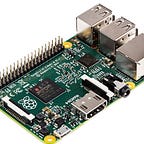The Transformative Role of Wearable Devices in Healthcare
Introduction
The healthcare industry has seen significant advancements over the past decade, one of which is the rise of wearable devices. From smartwatches that track our steps to sophisticated medical devices that monitor vital signs, wearables are changing the way we approach health and wellness. In this article, we’ll explore the various ways wearable devices are being utilized in the healthcare industry, their benefits, and the challenges they face.
The Many Applications of Wearable Devices
Wearable technology encompasses a wide range of devices that can be worn on the body. These include fitness trackers, smartwatches, ECG monitors, blood pressure monitors, and even smart clothing. Here are some key applications:
1. Fitness and Wellness
Fitness trackers and smartwatches are among the most popular wearables. They help users monitor their daily physical activity, heart rate, sleep patterns, and more. This data is invaluable for individuals looking to improve their overall health and wellness.
2. Chronic Disease Management
Wearable devices are particularly useful for managing chronic diseases such as diabetes, hypertension, and heart conditions. Devices like continuous glucose monitors (CGMs) and portable ECG monitors allow patients to keep track of their health metrics in real-time and share this data with their healthcare providers for better management.
3. Remote Patient Monitoring
With the advent of telemedicine, remote patient monitoring has become increasingly important. Wearable devices enable healthcare professionals to monitor patients’ vital signs remotely, reducing the need for frequent in-person visits and allowing for timely interventions.
4. Mental Health Monitoring
Beyond physical health, wearables are also being used to monitor mental well-being. Devices that track sleep quality, stress levels, and even emotional states can provide valuable insights into an individual’s mental health, which can be used to tailor therapeutic approaches.
Benefits of Wearable Devices in Healthcare
Wearable devices offer numerous benefits, both for individuals and healthcare providers:
1. Improved Patient Engagement
By providing real-time feedback, wearables encourage users to take a more active role in managing their health. This increased engagement can lead to better health outcomes.
2. Early Detection
Continuous monitoring allows for the early detection of potential health issues, enabling prompt intervention and potentially reducing the severity of certain conditions.
3. Cost-Effective
Wearable devices can help reduce healthcare costs by minimizing the need for in-person visits and hospitalizations. Remote monitoring and timely intervention can prevent complications that might otherwise require more intensive and expensive treatments.
Challenges and Future Directions
Despite their many benefits, wearable devices in healthcare are not without challenges:
1. Data Privacy and Security
As wearables collect sensitive health data, ensuring the privacy and security of this information is paramount. Robust encryption and compliant data management practices are essential to protect user data.
2. Accuracy and Reliability
The accuracy and reliability of wearable devices can vary, which can impact their effectiveness. Ongoing research and development are needed to improve the precision of these devices.
3. User Compliance
The effectiveness of wearable devices is dependent on user compliance. Ensuring that users consistently wear and maintain these devices is crucial for obtaining accurate data and achieving desired health outcomes.
Conclusion
Wearable devices are revolutionizing the healthcare industry by providing real-time insights into various health metrics, improving patient engagement, and enabling remote monitoring. While challenges such as data privacy, accuracy, and user compliance need to be addressed, the potential benefits far outweigh the drawbacks. As technology continues to evolve, we can expect wearable devices to play an increasingly important role in healthcare, leading to better health outcomes and a more efficient healthcare system.
